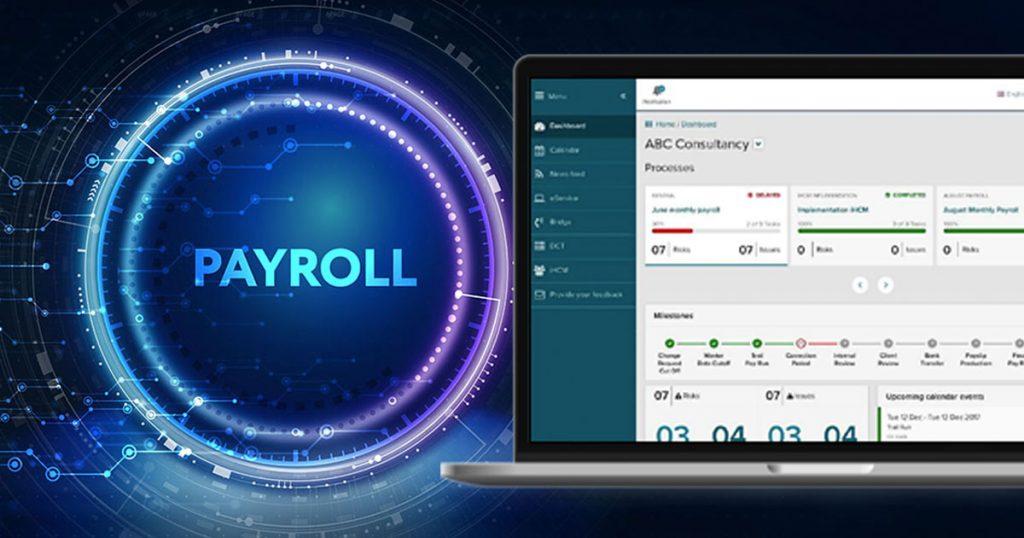Choosing the right payroll system is crucial for any business. It can affect how efficiently payroll is processed, how accurate employee paychecks are, and even how compliant your business is with tax laws. Understanding the different types of payroll systems available can help you select the one that best meets your needs.
What is a Payroll System?
A payroll system is a method used to manage and process employee salaries, wages, bonuses, and deductions. It ensures that employees are paid accurately and on time while adhering to all legal and tax obligations. Payroll systems handle various tasks, such as calculating wages, withholding taxes, and maintaining records.
In essence, a payroll system simplifies the process of paying employees and managing financial records. Whether it’s done manually or through automated software, the goal is to ensure accurate and timely payments. Different types of payroll systems offer various features and benefits, depending on the size and needs of your business.
How to Choose the Best Payroll System
Choosing the best payroll system involves considering several key factors:
- Business Size and Complexity: Larger businesses or those with complex payroll needs might require more advanced systems.
- Budget: Evaluate the cost of the system and its features to ensure it fits within your budget.
- Integration: Ensure the payroll system integrates well with other business systems, like accounting software.
- Compliance: The system should help you stay compliant with tax laws and employment regulations.
- Ease of Use: A user-friendly system can reduce errors and save time for your HR team.
Seven Different Types of Payroll Systems
Selecting the right payroll system can be overwhelming given the variety of options available. Understanding the different types of payroll systems can help you make an informed decision.
Software Payroll Systems
Software payroll systems are automated solutions installed on a company’s computers or servers. These systems streamline payroll processing by managing calculations for wages, taxes, and deductions. They often come with additional features such as direct deposit for employee payments, self-service portals where employees can access their pay stubs and tax documents, and integration capabilities with other business software, such as accounting systems. Well-known examples include QuickBooks Payroll and ADP Workforce Now, which offer robust features to simplify payroll management and ensure accuracy.
Payroll Card Systems
Payroll card systems are prepaid debit cards issued to employees as an alternative to traditional bank accounts. Instead of depositing wages into a bank account, employers load salaries onto these cards. This system is particularly useful for businesses with employees who do not have access to bank accounts. Payroll cards offer a convenient way for employees to access their earnings, make purchases, or withdraw cash without the hassle of paper checks. They often come with features such as online account management and direct deposit options, enhancing the flexibility of payroll delivery.
Online Payroll Services
Online payroll services are cloud-based platforms that handle payroll processing through the internet. These systems provide flexibility by allowing access from any device with an internet connection, whether it’s a computer, tablet, or smartphone. They offer real-time updates and are designed to automate various payroll tasks, including tax calculations, compliance, and reporting. Providers like Gusto and Paychex Flex offer comprehensive solutions, handling everything from payroll processing to tax filing and compliance management. The cloud-based nature of these services ensures that businesses can manage payroll efficiently, even when on the go.
Outsourced Payroll
Outsourced payroll involves hiring an external service provider to manage all aspects of payroll processing. This approach is beneficial for businesses looking to offload the complexities of payroll management, including tax calculations and compliance. Outsourced payroll providers, such as Paychex and ADP, take on responsibilities like processing employee pay, handling tax withholdings, and ensuring compliance with legal requirements. By outsourcing payroll, businesses can reduce internal workload and minimize the risk of errors, benefiting from the expertise and resources of specialized payroll service providers.
Manual Payroll System
A manual payroll system requires calculating employee pay and managing payroll records by hand. This traditional method is often used by small businesses or startups with straightforward payroll needs. While manual payroll systems can be cost-effective and provide a direct hands-on approach, they come with challenges. The process is time-consuming and prone to human error, particularly as the number of employees increases. This method may involve manually preparing paychecks, calculating deductions, and maintaining physical records, making it less efficient compared to automated solutions.
Agency Managed Payroll Service
Agency managed payroll services are a specialized form of outsourced payroll, where a dedicated team or agency takes over the payroll management process. These agencies offer personalized support, working closely with a company’s HR department to handle payroll tasks such as processing payments and managing tax compliance. This type of service provides a high level of customization and attention to detail, making it suitable for businesses that require tailored payroll solutions and extra support. The involvement of a dedicated team ensures that payroll is managed efficiently and accurately, meeting the specific needs of the business.
In-House Payroll Systems
In-house payroll systems are managed directly by a company’s HR or payroll department. This approach gives businesses complete control over their payroll processes and allows them to tailor the system to their specific needs. In-house payroll can involve using specialized software or traditional manual methods, depending on the company’s resources and preferences. By handling payroll internally, businesses can maintain direct oversight and customize their payroll procedures. However, managing payroll in-house requires a dedicated team and resources to ensure accuracy and compliance with tax laws and regulations.
Choosing the Right Payroll System for Your Business
Selecting the right payroll system is essential for ensuring smooth and efficient payroll management. By understanding the different types of payroll systems and evaluating your business’s needs, you can make an informed choice that enhances payroll accuracy, compliance, and overall efficiency. Whether you opt for an automated solution or a more traditional approach, the goal is to find a system that best supports your business operations and employee satisfaction.
